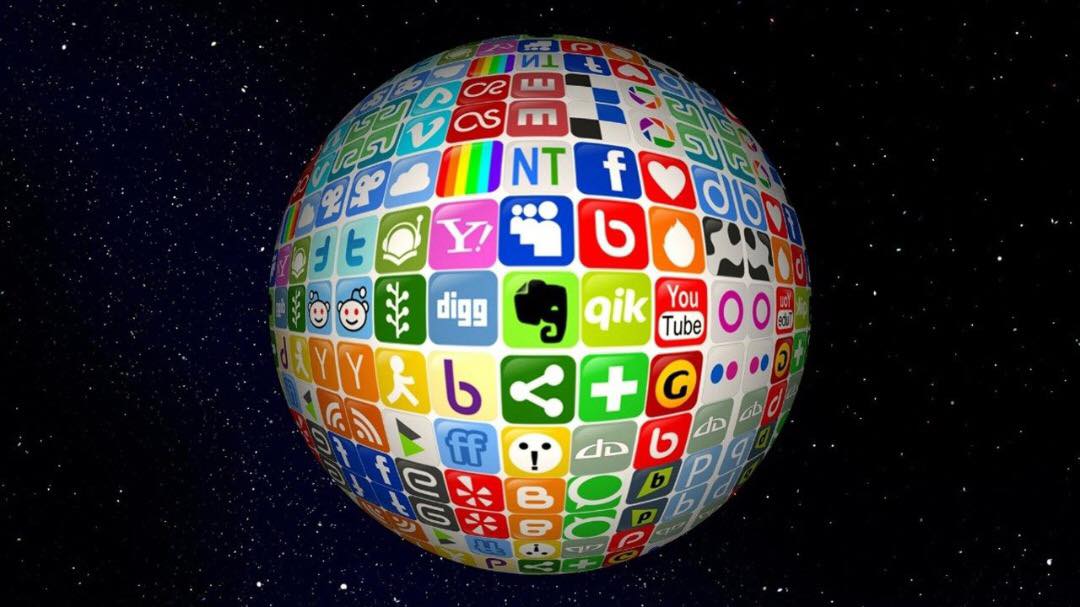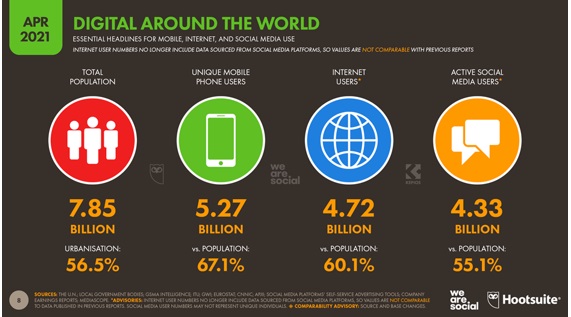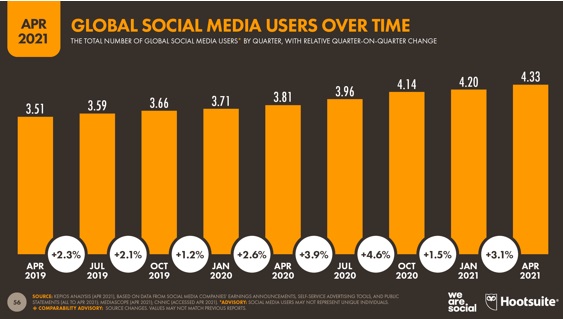Church, Clergy, Social Media, and the Pandemic
A Reflection in Conjunction with World Communications Day 2021
May 15, 2021

By Rev Fr Dr Clarence Devadass
For two millennia, a chain of such encounters has communicated the attractiveness of the Christian adventure. The challenge that awaits us, then, is to communicate by encountering people, where they are and as they are.
(Pope Francis, World Communications Day 2021)
PART I
Anyone who has watched the documentary "The Social Dilemma" will come away thinking what a "monster" we have created through the World Wide Web and how our lives are no longer our own - it is time to disengage! Does it stop them from social media, though? Surprisingly, no. Ironically, it is the very same individuals that will probably post their dissatisfaction online around how we are all "trapped" in this complete loss of privacy and doomed if we don't do something to stop this "monster". Truth be told! We are a generation that quickly forgets even when we feel guilty and make bold pronouncements as an immediate after effect. Somehow, we come back right at it as soon as we leave. As the documentary quotes, "Social Media is a drug," – it is quite apparent how it does really lead to an addictive tendency.
When Tim Berners-Lee, a British scientist, invented the World Wide Web in 1989, it was initially conceived and developed to meet the demand for automated information-sharing between scientists in universities and institutes around the world. Never in Lee's wildest dreams would he have imagined the future of connectivity the likes of what we see today. Social Media - "the lovechild" of the World Wide Web has also drastically reshaped the way we live today. Appearing in a wide range of forms, it includes Social Networks (Facebook, Twitter, LinkedIn…), Media Sharing Networks (Instagram, Snapchat, YouTube…), Discussion Forums (Reddit, Quora, Digg), Bookmarking & Content Curation Networks (Pinterest, Flipboard), Blogging & Publishing Networks (WordPress, Tumblr, Medium..), Consumer Review Networks (Yelp, Zomato, TripAdvisor), Social Shopping Networks and Interest-Based Networks – certainly not an exhaustive list. From a web of information to what the digital world is to us today, it is evident that social media is here to stay, and we can never go back to where we were before.
Technology: The Brave New World
Let's take a look at some digital trends that will reshape the landscape for Church as we know it. The new Digital 2021 April Global Statshot Report (published in partnership between Hootsuite and We Are Social) reveals that more than 6 in 10 people on Earth now use the internet. Internet users that number 4.72 billion equates to more than 60% of the world's total population. 
Meanwhile, the number of social media users has increased by an average of more than 1.4 million each day over the past 12 months. This rapid growth has propelled the global total to 4.33 billion, which equates to more than 55% of the world's total population.
There are no signs that this penetration is slowing down. It is estimated that the number of social network users will increase from 3.78 billion in 2021 to 4.41 billion in 2025. What is even more mind-boggling is that by 2030, some 50 billion connected devices will be in use worldwide, creating smart networks both inside and outside the home for an estimated 9 billion world population.
A Forward-Looking Adaptive Church
The above statistics are indicative of how the digital space has now gripped us. There is no question that this is unlikely to decrease or disappear in the foreseeable future. The Church, too, is not spared from having to embrace this "web of connectivity" even though we may have jumped onto this bandwagon a little later than others. According to a foreign research, 62% of churches use social networking to connect with individuals outside of their congregation. While an even larger number—73%, according to LifeWay Research—use social media to interact with their congregation. The majority of churches with an online presence are already using social media as a growth tool. In his message for World Communications Day 2014, Pope Francis said, "The revolution taking place in communications media and in information technologies represents a great and thrilling challenge; may we respond to that challenge with fresh energy and imagination as we seek to share with others the beauty of God."
The Covid-19 pandemic, to a large extent, forced the acceleration of the church's adaptability, compelling it to lean into the digital age of connectivity and community almost instantaneously. Just as the digital focus was at the forefront for businesses, the same was the situation with Churches. Riding the social media wave has brought a tremendous benefit to many organisations that needed to be connected to remain relevant to remain "in business". It has been a blessing to have this "tool" to help us be connected at a time when face-to-face communication wasn't viable. In response to the coronavirus, many churches were left playing catch-up to get themselves online. It is becoming clearer that even in the post-pandemic world, it won't be the light switch you hope to turn on, and suddenly, we're all back! Churches will definitely need to adapt their purpose to the new realities that emerge in the digital age.
From the moment Jesus sent His disciples on mission, the Gospel (Good News) has been at the core of the proclaimed message. Though over the centuries, while methods have changed, the message has not. Pope Francis said that "Communication is a means of expressing the missionary vocation of the entire Church; today the social networks are one way to experience this call to discover the beauty of faith, the beauty of encountering Christ. In the area of communications too, we need a Church capable of bringing warmth and of stirring hearts" (2014).
As the days of the pandemic prolonged, Churches realised that it was no longer just migrating to social media platforms such as Facebook, Twitter, and YouTube to stay connected with a physical Church. Still, the challenge of migrating to an online Church revolves around building virtual communities and online worship spaces. Now that Churches have become "borderless" and are no longer bound by any geographical boundaries, virtual "parish communities" are go-to places for many people in search of that "perfect spiritual community". Geographically one may belong to a particular physical community, but at the same time, spiritually, one can belong to many virtual communities anywhere in the world. The reality is that social media now allows individuals and groups to interact with other demographics and community members who, before the pandemic, may not have reached or even knew of their existence. Interesting to note that a new trend of virtual church-hopping has emerged now that virtual attendance is becoming the norm. Early in the pandemic, a Barna Group survey of practising Christians who had attended church at least once a month found the following:
–– 35% only were still attending their pre-COVID church (in-person or online);
–– 32% stopped attending altogether (both in-person and online) in the weeks following the pandemic outbreak;
–– 14% switched churches;
––18% began attending multiple churches online;
This accentuates the two primary questions at the back of the minds of many Church leaders, "After the pandemic, will people return to Church" and "How will Churches look in the post-pandemic world?" In the current period, these hypothetical questions can only have speculative answers since we are still not out of the woods. However, the pandemic has brought about an awareness that being Church has to go beyond just going to church. Many people lamented that the pandemic "robbed" us of going to church, but the more important question is, "did the pandemic also rob us of being Church" just because we could not go to Church? It is a fact that online Church participation is nowhere the same as being present physically at an onsite Church. However, whether online or onsite, a fundamental question to ponder is 'despite the circumstances, were we still "church"? Like the world will look significantly different as we emerge out of this pandemic, the Church is also not exempt from this challenge. If we just want to return to the nostalgic pre-pandemic times, we would have missed the opportunity God is giving us to do things differently, to begin anew.
(Rev. Fr. Dr Clarence Devadass is the Director of the Catholic Research Centre in Kuala Lumpur. Though not a media professional by training, but a practitioner whose interest in being Church in the new era has always been at the forefront of his reflection and thought.)







Total Comments:0